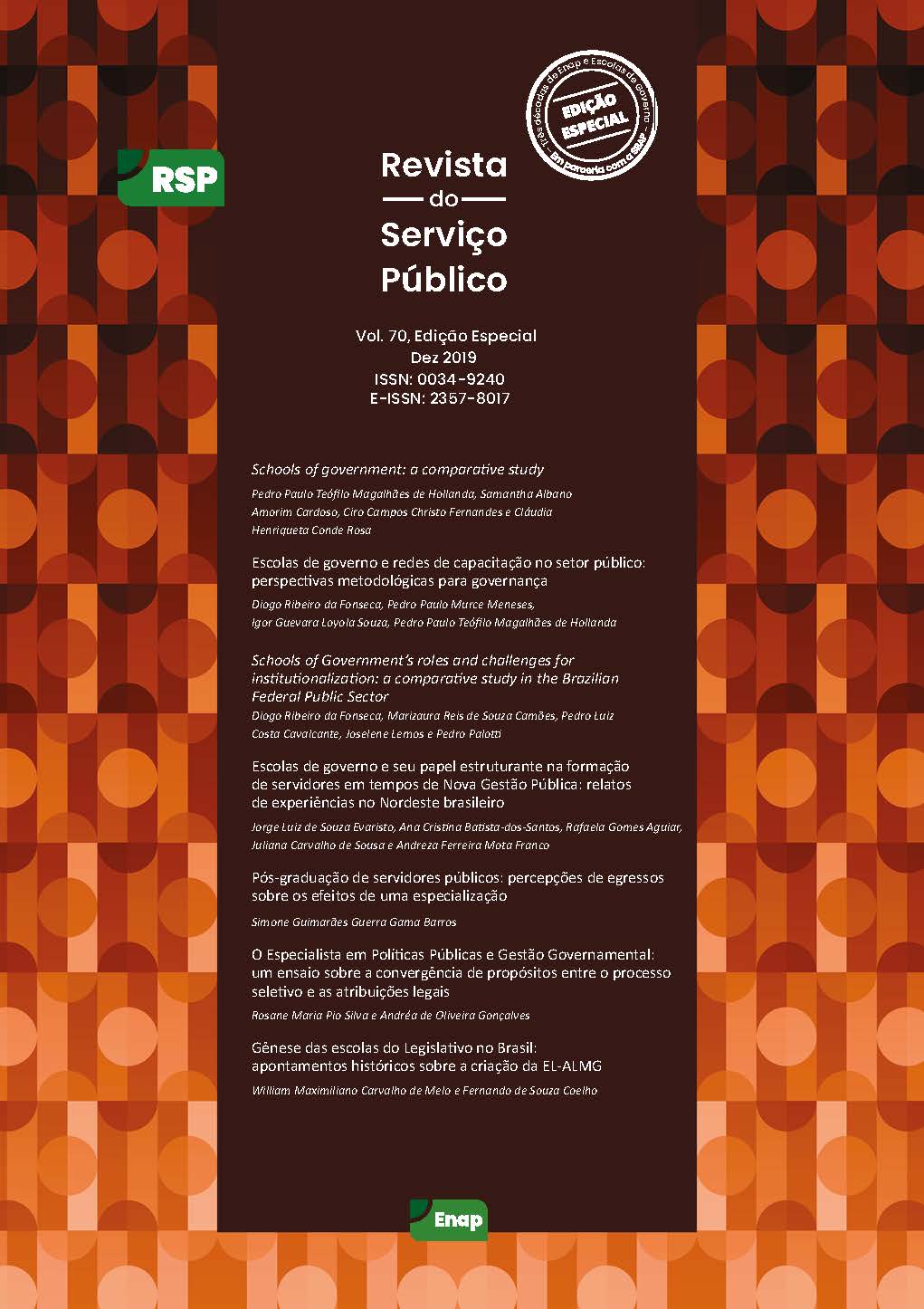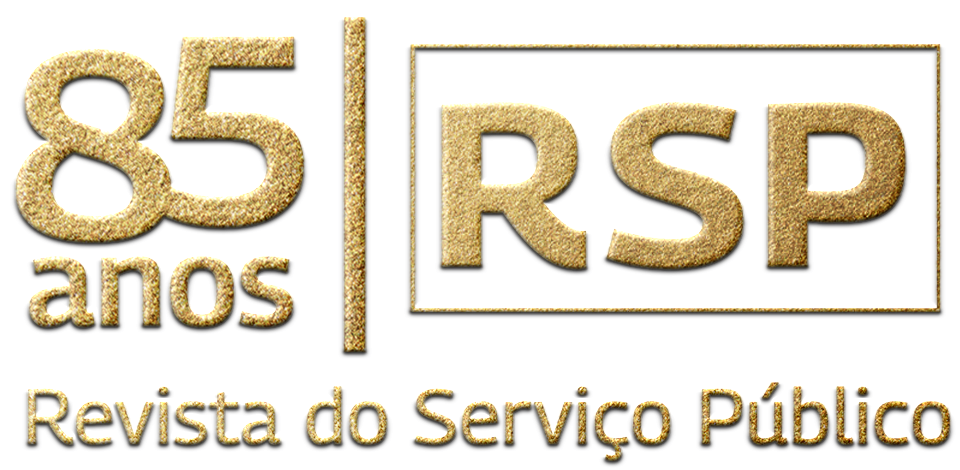Escolas de Governo e Redes de Capacitação no Setor Público: Perspectivas Metodológicas para Governança
DOI:
https://doi.org/10.21874/rsp.v70i0.1479Palabras clave:
Desenvolvimento de Pessoal, Governança em Redes, Análise de Redes SociaisResumen
O presente artigo teórico tem por objetivo a proposição de diretrizes metodológicas para a análise de redes de capacitação no setor público federal, visando ao desenvolvimento de mecanismos de gestão para a sua maior efetividade. As atuais políticas de desenvolvimento de pessoal no Governo Federal têm atribuído um papel maior às escolas de governo na articulação e coordenação de redes de treinamento. Não obstante, o atestado fracasso da política de desenvolvimento na consecução de seus objetivos aponta para a necessidade de aperfeiçoamento dos modelos de governança adotados. O presente artigo adota as perspectivas teóricas da análise de redes sociais, desenvolvimento de pessoas e gestão de redes de políticas públicas para concepção de métodos e ferramentas de gestão da rede de capacitação federal. Raramente a literatura aborda a análise de redes interorganizacionais completas, tampouco em aspectos relativos ao desenvolvimento de pessoas. No âmbito de uma produção predominantemente teórica e exploratória, o presente artigo avança ao apresentar um modelo analítico macro-organizacional que operacionaliza variáveis para o estudo dos padrões de relacionamento entre organizações, relativos ao intercâmbio de conhecimentos e recursos, realizados por meio de ações formais de capacitação. Sob um ponto de vista prático, o modelo proposto visa subsidiar o aprimoramento das políticas de treinamento e seus mecanismos de governança utilizados por organizações públicas, órgãos centrais e escolas de governo, visando à maior efetividade das atividades de desenvolvimento de pessoal na administração pública.
Descargas
Descargas
Publicado
Cómo citar
Número
Sección
Licencia
Derechos de autor 2019 Revista do Serviço Público

Esta obra está bajo una licencia internacional Creative Commons Atribución-NoComercial-CompartirIgual 4.0.
- A RSP adota a licença Creative Commons (CC) do tipo Atribuição – Uso Não-Comercial (BY-NC).
- A licença permite que outros remixem, adaptem e criem obra licenciada, sendo proibido o uso com fins comerciais.
- As novas obras devem fazer referência ao autor nos créditos e não podem ser usadas com fins comerciais, porém não precisam ser licenciadas sob os mesmos termos dessa licença.
- Ao publicar o artigo na RSP, o autor cede e transfere para a ENAP os direitos autorais patrimoniais referentes ao artigo.
- O artigo publicado na RSP não poderá ser divulgado em outro meio sem a devida referência à publicação de origem.
- O autor que tiver o artigo publicado na RSP deverá assinar o Termo de Concessão de Direitos Autorais (em momento oportuno a editoria da Revista entrará em contato com o autor para assinatura do Termo).



